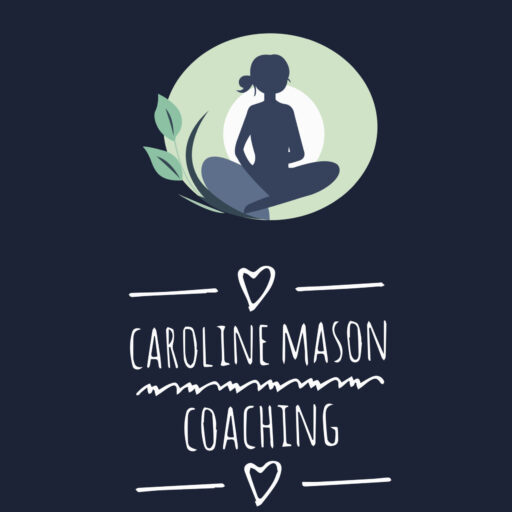As a leadership coach, I'm often asked which skill matters more: emotional regulation or emotional intelligence. The question itself reveals something fascinating about how we think about leadership development. We tend to want the "one thing" that will transform our effectiveness, but here's what I've discovered through years of working with leaders: these aren't competing skills at all.
In my coaching practice, I've seen how this misconception holds leaders back. Many try to control emotion in isolation, instead of developing a human-centric approach to working with emotions. They focus on controlling their emotions (regulation) whilst neglecting the broader framework of understanding and working with emotions (intelligence), or vice versa. "Human-centric leadership is now foundational for organizational resilience in 2025." Today, I want to share what really drives results and how you can develop both skills in a way that transforms your leadership impact.
Understanding the Real Relationship
Let me start with a perspective that might surprise you: emotional regulation is actually a component of emotional intelligence, not its competitor. Think of emotional intelligence as the comprehensive framework: the house, if you will: and emotional regulation as one of the essential rooms within it.
Emotional intelligence encompasses five core areas: self-awareness, self-regulation, motivation, empathy, and social skills. When research shows that EQ accounts for 67% of the skills needed for effective leadership, it's talking about this complete framework. Human-centric leaders drive engagement and innovation. I've witnessed this firsthand with my clients: those who develop across all five areas see dramatically different results than those who focus narrowly on just controlling their emotional responses.

But here's where it gets interesting. Emotional regulation: your ability to manage emotional responses and prevent them from hijacking your decision-making: is the skill that often determines whether you can access your broader emotional intelligence under pressure.
How Each Skill Shows Up in Leadership
In my work with executives and emerging leaders, I see distinct patterns in how these skills manifest:
Emotional Intelligence in Action:
I think of Sarah, a client who transformed her team's performance by developing her empathy and social skills through a more human-centric approach. She learned to read the emotional undercurrents in meetings, adjust her communication style for different personality types, and create psychological safety that allowed her team to innovate with purpose. The result? A 40% increase in team engagement scores and breakthrough solutions to long-standing problems.
Emotional Regulation in Practice:
Then there's Michael, whose career was stalling because he couldn't manage his frustration during high-stakes negotiations. Together, we worked on specific emotional regulation strategies: particularly cognitive reappraisal (reframing situations) and situation modification (changing the circumstances rather than just reacting to them). Within six months, he was leading multi-million-pound deals with confidence and calm.
The key insight? Sarah needed the full emotional intelligence framework to build relationships and create team transformation. Michael needed specific emotional regulation skills to perform under pressure. Most leaders need both.
The Four Emotional Regulation Strategies That Actually Work
Through my coaching experience and the latest research, I've identified which emotional regulation strategies truly drive results:
1. Situation Modification
This means actively changing the situation rather than just managing your reaction to it. If team meetings consistently become heated, change the structure, timing, or participants rather than simply trying to stay calm during the chaos.
2. Cognitive Reappraisal
This is about reinterpreting situations in more productive ways. Instead of seeing a challenging team member as "difficult," you might reframe them as "passionate about their work but needing better communication strategies."
3. Attentional Deployment
Strategically directing your focus where it's most helpful. During a crisis, this might mean focusing on solutions rather than problems, or on your team's needs rather than your own anxiety.
4. Emotional Suppression
Here's what's crucial: research shows this strategy actually undermines performance. Simply hiding your emotions doesn't address their impact on your thinking and decision-making.

Which Skill Drives Better Results?
After working with hundreds of leaders, I can tell you the answer isn't what you might expect. It's not either/or: it's both, but in different ways:
| Aspect | Emotional Intelligence | Emotional Regulation |
|---|---|---|
| Team Building | Creates trust, engagement, psychological safety | Maintains calm leadership during team conflicts |
| Strategic Decisions | Integrates emotional data into strategic thinking | Prevents emotional overwhelm during uncertainty |
| Crisis Leadership | Builds resilience and adaptability | Enables clear thinking when stakes are high |
| Culture Change | Drives long-term transformation | Provides stability during transition |
| Performance Impact | 67% of leadership effectiveness | Prevents derailment in high-pressure situations |
The leaders who achieve exceptional results develop both. They use emotional intelligence to build the relationships and culture that drive sustainable performance, and they use emotional regulation to maintain effectiveness when the pressure is on. "Employees want leaders who enable, listen, adapt, and empower—not just show compassion."
The Integration Approach That Transforms Leadership
In my coaching methodology, I help leaders develop what I call "Integrated Emotional Leadership"—a human-centric way of leading. Here's how it works:
Foundation: Build Emotional Intelligence Comprehensively
Start with self-awareness: understanding your emotional patterns, triggers, and impact on others. Then develop empathy, social skills, and intrinsic motivation. This creates the foundation for sustainable leadership effectiveness.
Precision Tool: Master Emotional Regulation Strategies
Within that broader development, focus intensively on cognitive reappraisal and situation modification. These strategies don't just help you stay calm: they actually improve the quality of your decisions and relationships.
Application: Practice Under Real Pressure
The magic happens when you can access both skill sets simultaneously. During your next challenging conversation, use your emotional intelligence to read the other person's needs and concerns, whilst using emotional regulation to maintain clarity and composure.

What This Means for Your Leadership Development
If you're wondering where to focus your development energy, here's my recommendation based on what I've seen work:
If you're early in your leadership journey: Start with emotional intelligence fundamentals. Build your self-awareness, develop empathy, and strengthen your social skills. These create the foundation everything else builds upon.
If you're an experienced leader facing new challenges: Focus on emotional regulation strategies, particularly cognitive reappraisal. This will help you leverage your existing emotional intelligence more effectively under pressure.
If you're leading through change or crisis: Integrate both consciously. Use your emotional intelligence to understand and support your team, whilst relying on emotional regulation to maintain the steady leadership they need.
Moving Forward with Integrated Emotional Leadership
The question isn't which skill drives better results: it's how you can develop both in a way that supports your unique leadership context. I've seen too many talented leaders plateau because they developed one without the other.
Emotional intelligence without regulation leaves you vulnerable during high-stakes moments. Emotional regulation without broader intelligence can make you appear cold or disconnected, undermining the very relationships you need for sustainable success.
The leaders who truly transform their organisations, teams, and results are those who develop both skills in an integrated way. They create environments where people want to contribute their best work precisely because they feel understood and supported, whilst also seeing calm, capable leadership during challenging times.
Ready to Develop Your Emotional Leadership?
If you're recognising patterns in your own leadership: perhaps strong emotional intelligence but struggling under pressure, or good emotional control but difficulty building deeper team connections: you're not alone. This integration is exactly what I help leaders develop in my coaching practice.
Through our work together, we'll assess where you are across both skill sets, identify the specific areas that will have the biggest impact on your leadership effectiveness, and create a development plan that builds on your strengths whilst addressing the gaps that might be limiting your results.
Whether you're looking to enhance your emotional intelligence foundation, develop more sophisticated emotional regulation strategies, or integrate both for maximum leadership impact in a human-centric way, I'm here to support your growth. My approach combines practical tools with deep personal insight, helping you develop the emotional leadership skills that drive real, measurable results.
Ready to take your leadership to the next level? Let's work together to develop the integrated emotional leadership that will transform both your effectiveness and your impact. Contact me today to explore how we can unlock your full leadership potential.
Ready to integrate emotional intelligence and emotional regulation for real impact?
If you’re looking to build the emotional skills that elevate performance—staying clear under pressure, creating trust, and leading with confidence—I’d love to help. I offer coaching focused on emotional skill development for leadership effectiveness: strengthening self-awareness, mastering practical regulation strategies, and applying them in the moments that matter for you and your team.
Book a free 15-minute discovery call and let’s explore what focused support looks like in your context.
With light and warmth,



